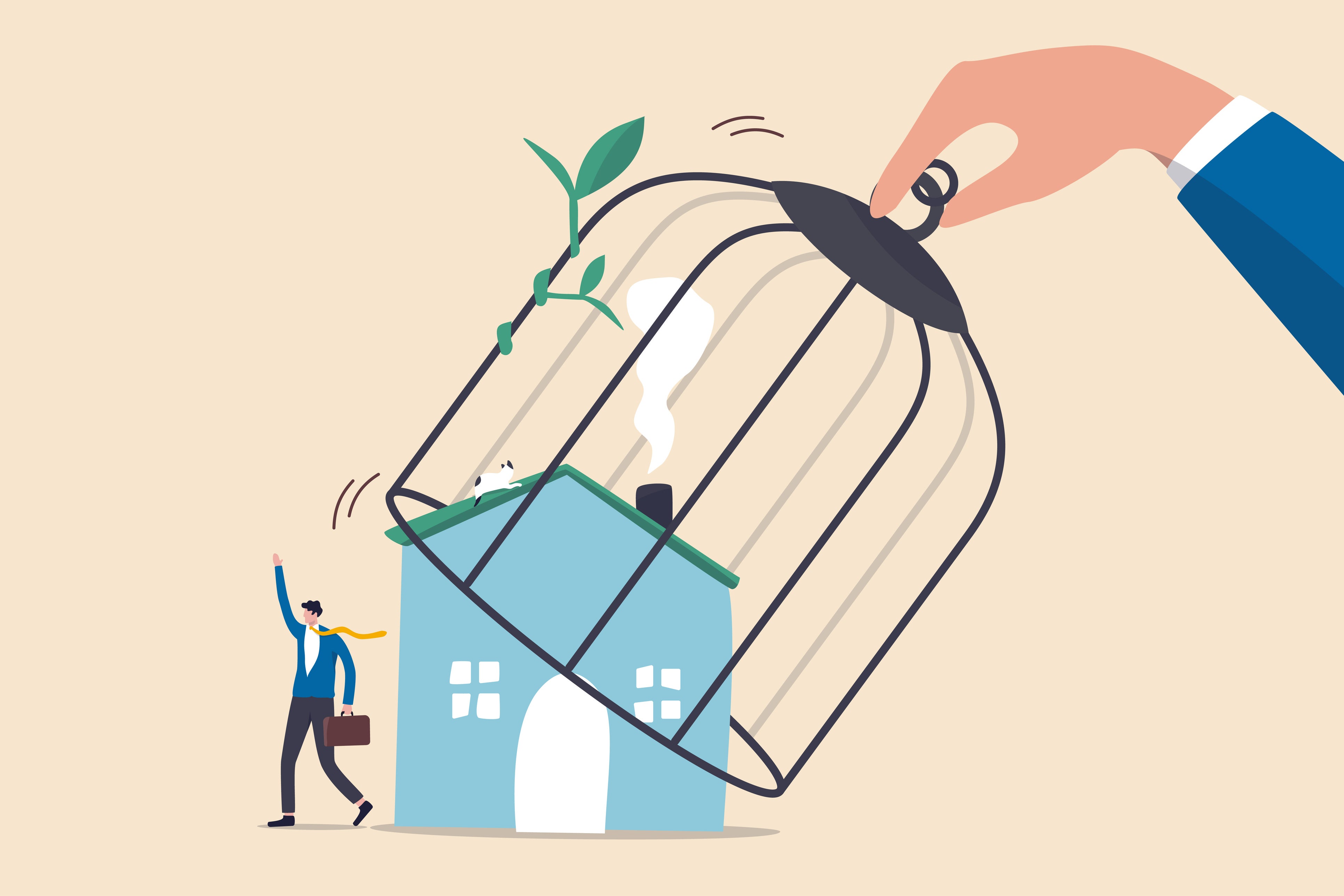Could the end of the pandemic be the start of a fresh start?
As we edge closer to the end of lockdowns, now might be a great time for a fresh start and make those changes you’ve been wanting to make to your life, writes Tara Parker-Pope

Your support helps us to tell the story
From reproductive rights to climate change to Big Tech, The Independent is on the ground when the story is developing. Whether it's investigating the financials of Elon Musk's pro-Trump PAC or producing our latest documentary, 'The A Word', which shines a light on the American women fighting for reproductive rights, we know how important it is to parse out the facts from the messaging.
At such a critical moment in US history, we need reporters on the ground. Your donation allows us to keep sending journalists to speak to both sides of the story.
The Independent is trusted by Americans across the entire political spectrum. And unlike many other quality news outlets, we choose not to lock Americans out of our reporting and analysis with paywalls. We believe quality journalism should be available to everyone, paid for by those who can afford it.
Your support makes all the difference.If there was ever a perfect time to make a lifechange, this is it.
Behavioural scientists have long known that times of disruption and trauma also create new opportunities for growth and change. Disruption happens when life knocks us out of our normal routines. It can be moving to a new city, starting a new job, getting married or divorced, or having a child. And for many of us, there’s never been a bigger life disruption than the pandemic, which changed how we work, eat, sleep and exercise, and even how we connect with friends and family.
“I think this fresh start is really a big opportunity,” said Katy Milkman, a professor at the Wharton School and author of the new book How to Change: The Science of Getting From Where You Are to Where You Want to Be.
“I don’t know when we’ll have another one like it. We have this blank slate to work on. Everything is on the table to start fresh.”
Much of Milkman’s research has focused on the science of new beginnings, which she calls “the fresh start effect.” Milkman and her colleagues have found that we’re most inclined to make meaningful changes around “temporal landmarks” — points in time that we naturally associate with a new beginning. New Year’s Day is the most obvious temporal landmark in our lives, but birthdays, the start of spring, the start of a new school year, even the beginning of the week or the first of the month are all temporal landmarks that create psychological opportunities for change.
In one study, Milkman found that students were most likely to visit the gym around the start of the week, the first of the month, following birthdays or after school breaks. Another study found that “fresh start language” helped people kick-start their goals. In that study, people were far more likely to start a new goal on a day labeled “the first day of spring” than on an unremarkable day labeled “the third Thursday in March.” (It was the exact same day, just labeled differently.)
We have this opportunity with this blank slate to change our health habits and be very conscientious about our day
Another study found that when people were advised to start saving money in a few months, they were less likely to do so than a group of people told to start saving around their birthday that was also a few months away. The birthday group saved 30 per cent more money.
For many people, the lifting of pandemic restrictions and getting vaccinated means planning vacations and returning to more-normal work and school routines. It’s exactly the kind of psychological new beginning that could prompt the fresh-start effect, Milkman said.
“We have this opportunity with this blank slate to change our health habits and be very conscientious about our day,” Milkman said. “What is our lunch routine going to look like? What is our exercise routine? There’s an opportunity to rethink. What do we want a workday to look like?”
It’s not too late to reset
As the pandemic recedes, some people worry that the past year of lockdowns, restrictions and time at home was a missed opportunity. Leslie Scott, a nonprofit event organiser in Eugene, Oregon, said she feels that she just muddled through a stressful year, rather than using the time to make meaningful life changes.
“I sometimes wonder if I squandered this gift of time,” said Scott, an organiser of the Oregon Truffle Festival. “I have all this anxiety that we’re just going to go back to what people think of as normal. As we come out of our cocoons, am I emerging from something and moving toward something new? Or am I just stuck?”

While some people did develop healthy new habits during lockdowns, it’s not too late if you spent your pandemic days just getting by. The good news is that the end of the pandemic is probably a more opportune time for meaningful change than when you were experiencing the heightened anxiety of lockdowns.
“Covid-19 was an awful time for many of us,” said Laurie Santos, a psychology professor at Yale who teaches a popular online course called The Science of Well-Being. “There’s lots of evidence for what’s called post-traumatic growth — that we can come out stronger and with a bit more meaning in our lives after going through negative events. I think we can all harness this awful pandemic time as a time to get some post-traumatic growth in our own lives.”
So what’s your next chapter?
One of the biggest obstacles to change has always been the fact that we tend to have established routines that are hard to break. But the pandemic shattered many people’s routines, setting us up for a reset, Santos said.
“We’ve all just changed our routines so much,” she said. “I think many of us have realised during the pandemic that some of the things we were doing before Covid-19 weren’t the kind of things that were leading to flourishing in our lives. I think many of us were realising that aspects of our work and family life and even our relationships probably need to change if we want to be happier.”
One reason fresh starts can be so effective is that humans tend to think about the passage of time in chapters or episodes, rather than on a continuum, Milkman said. As a result, we tend to think of the past in terms of unique periods, such as our high school years, the college years, the years we lived in a particular town or worked at a certain job. Going forward, we’re likely to look back on the pandemic year as a similarly unique chapter of our lives.
Read More:
“We have chapter breaks, as if life is a novel. That is the way we mark time,” Milkman said. “That has implications for the psychology of fresh starts, because these moments that open a new chapter give us a sense of a new beginning.
"It’s easier to attribute any failings to ‘the old me.’ You feel like you can achieve more now, because we’re in a new chapter.”
© The New York Times
Join our commenting forum
Join thought-provoking conversations, follow other Independent readers and see their replies
Comments